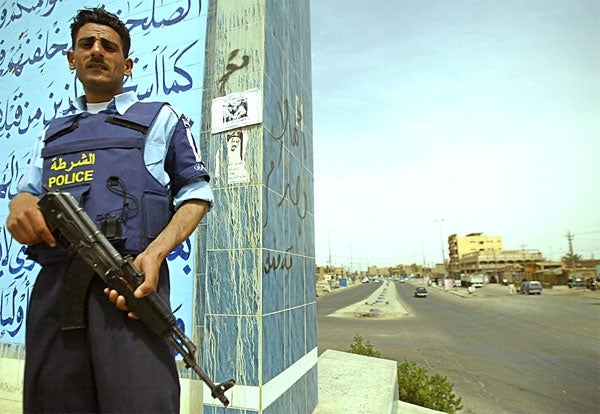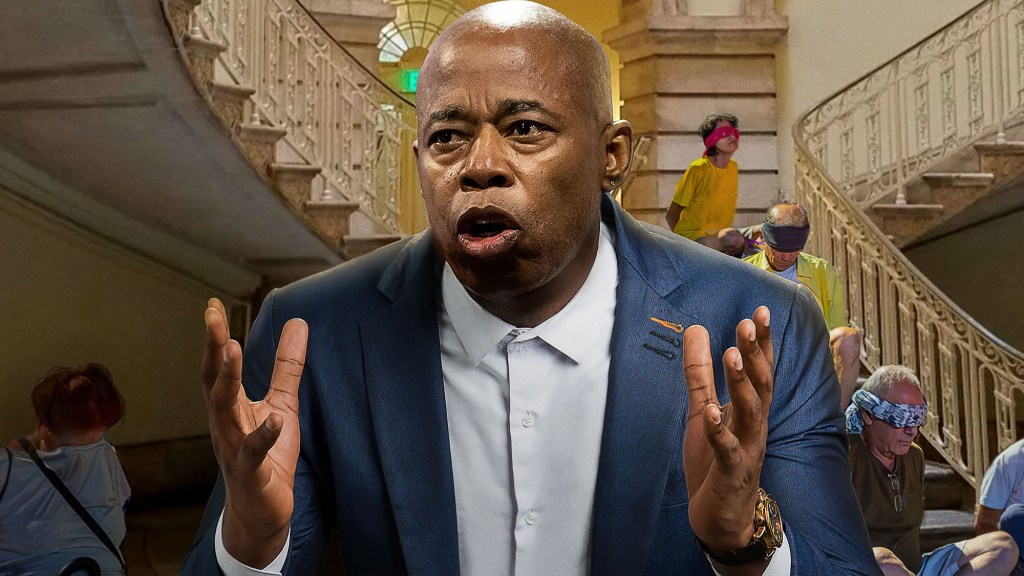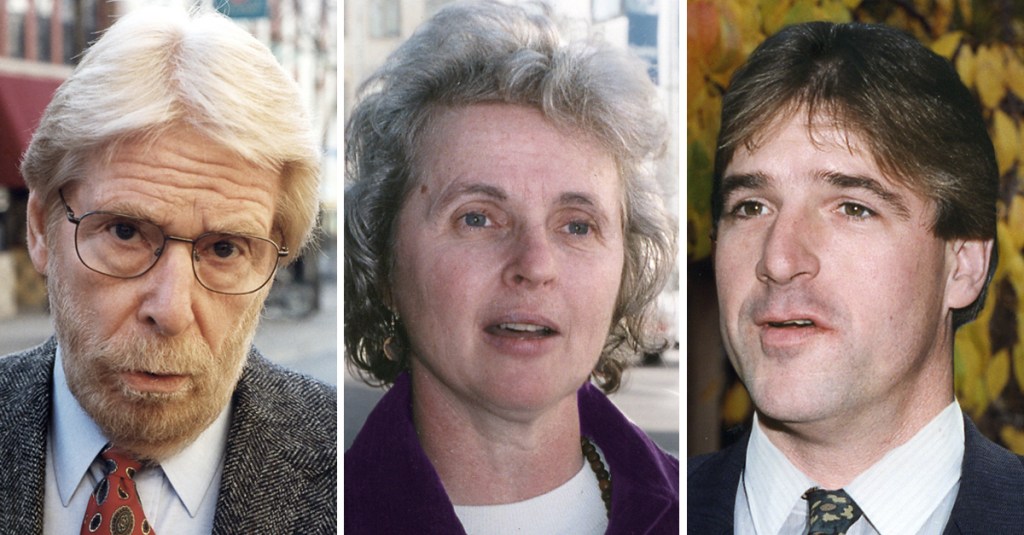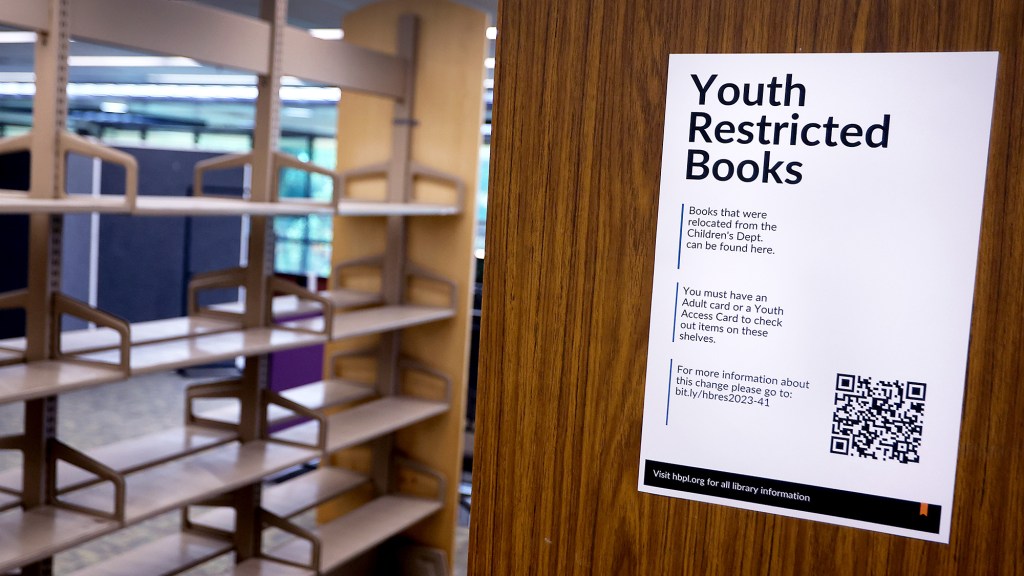BAGHDAD—When the hot evening sun sets over Baghdad, Sulieman Hassim does not go home to his wife and family. For this Iraqi, the work day has only just begun.
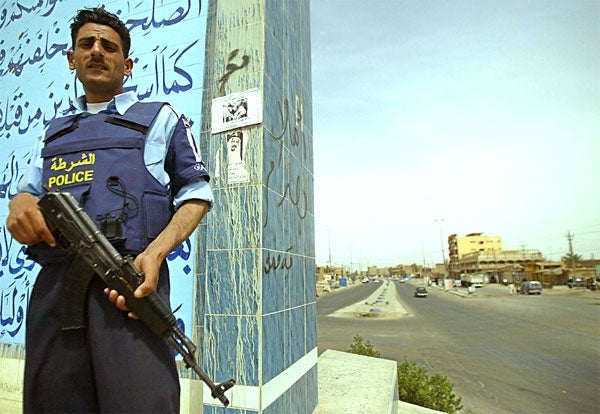
Hassim, 32, is a two-year veteran of the Baghdad police force. Despite earning “danger pay,” he still struggles to stay afloat financially, and has had to take on a second job as a terrorist just to make ends meet.
“After my electricity and water supply were restored, I suddenly had a lot more bills to pay,” Hassim said. “Jobs are still pretty scarce, but I figured terrorists are always hiring.”
Hassim, who has previously supplemented his income with such part-time jobs as guarding gas-fueled turbines from insurgents and driving a taxi, said he was initially unsure that he was qualified for terrorist work.
“My buddy Abdullah [Bahri] worked at the Brotherhood Of Total Islamic War, and he said he’d put in a good word for me with the head sheik,” Hassim said. “I didn’t expect to hear back for a while, but before I knew it, I got an interview.”
While Hassim had worried that his lack of experience and his creased suit would hurt his chances of being hired, he later said “the only thing they seemed to care about was whether I had a car.”
Although happy to have extra work, Hassim is not always able to fulfill his duties as a terrorist, resulting in some unexpected complications.
“Last week, I couldn’t work a suicide-bombing shift because I had to be alive early the next morning for patrol duty,” Hassim said. “I was calling everyone, but I had a hell of a time trying to find someone to replace me. At the last minute, Fathi [Abd al-Khalid] agreed to take the shift. That guy’s such a martyr.”
After less than a month as a terrorist, the physical and mental strain of working 70-hour weeks can be seen in Hassim’s tired, sunken eyes and stooped posture. Complaining of exhaustion, Hassim said that he doesn’t “know what job [he’s] at half the time.”

“Several times, I’ve found myself wondering, ’Now, why am I shooting this guy again? Because he’s just stolen a can of gasoline, or because he’s a cowardly informant of the hated occupier?’” Hassim said. “’Should I mow down the American soldiers at this checkpoint, or politely flash my badge?’”
Hassim said he had a particularly close call last Sunday.
“I was screaming that U.S. soldiers are murderous infidels whose blood should be spilled without hesitation, when I realized that I was at the police station,” Hassim said. “Luckily, the other officers either weren’t paying attention or they agreed with me.”
Hassim said it “felt strange” to bomb an embassy outpost, punch out, report to work as a police officer, then return to the same site an hour later to secure the area.
“That’s happened a couple times,” Hassim said. “I find myself going, ’Déjà vu?’ And then I’m like, ’Oh, yeah.’”
Hassim’s supervisors at both the police station and the Brotherhood Of Total Islamic War were critical of his job performance.
“Hassim’s accidental-kill rate has doubled in recent weeks,” said Capt. Badeer Mustafa, Hassim’s immediate superior at the police department. “Last week, he shot 20 civilians. I might have to dock his pay.”
Mohammed al-Zahass, a high commander with the Brotherhood Of Total Islamic War, has been displeased with Hassim’s performance, as well.
“Second time this week, we’ve had to tell him to hit ’record’ on the video camera, not ’play,’” al-Zahass said. “I couldn’t believe it. I said, ’Look at the buttons if you’re confused!’ It’s not like you can behead a hostage twice.”
Hassim’s family has also felt the strain.
“I rarely see my husband anymore,” Ghayda Hassim said. “I never thought I’d say this, but I miss the early months of the occupation when Sulieman was out of work like everyone else, sipping mint tea, watching Al-Jazeera at full blast, and ordering me around like a slave. I want my old Sulieman back.”
Although Hassim, like most Iraqis, would like to see an end to the bloodshed, the father of four admitted he just can’t afford it.
“If the situation in Iraq were to stabilize, I could possibly lose not only one job, but two. Thankfully, I won’t have to worry about that for a long, long time.”


